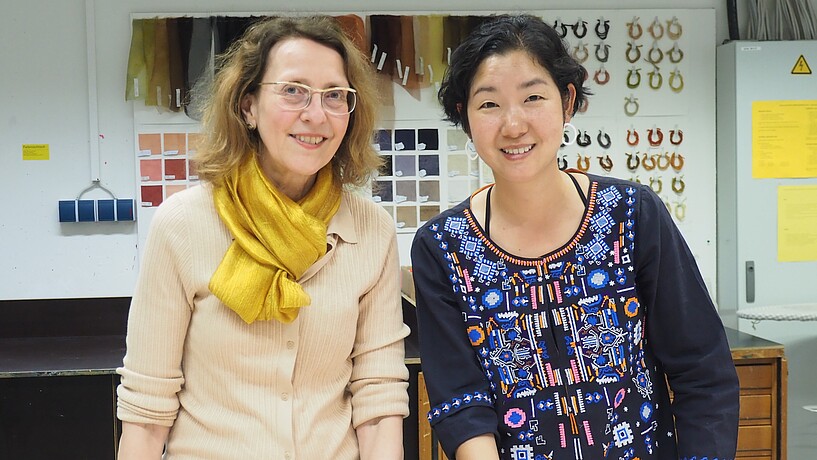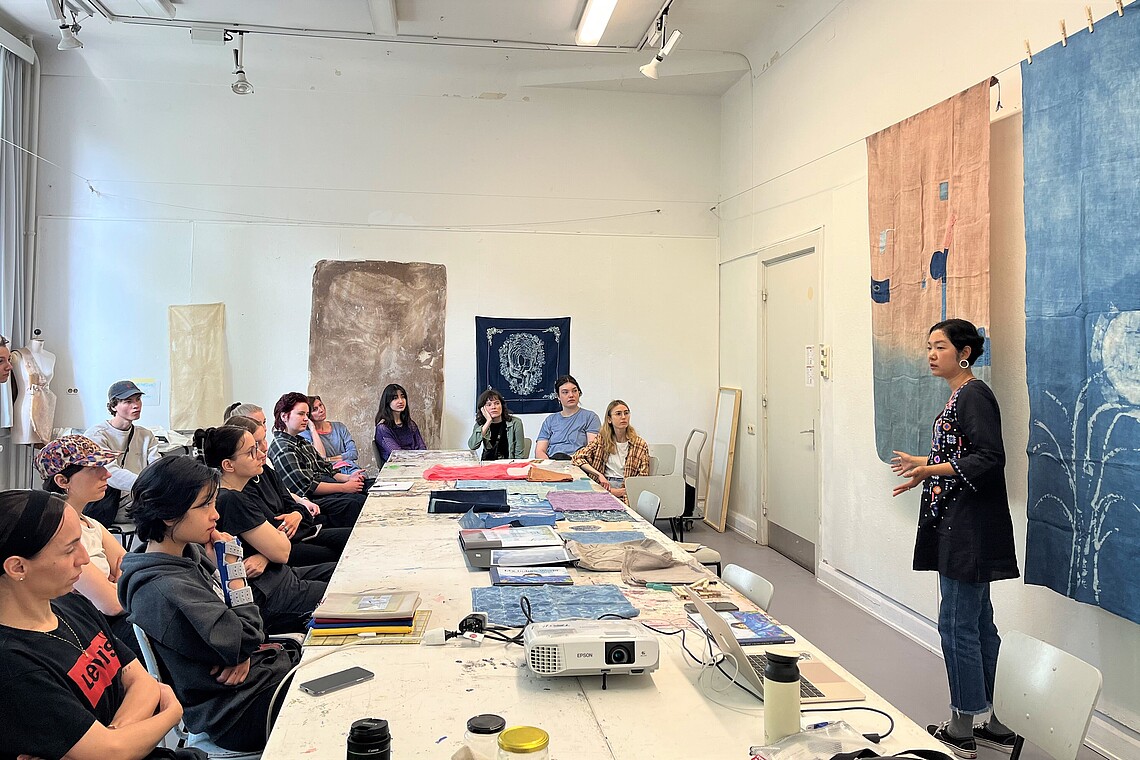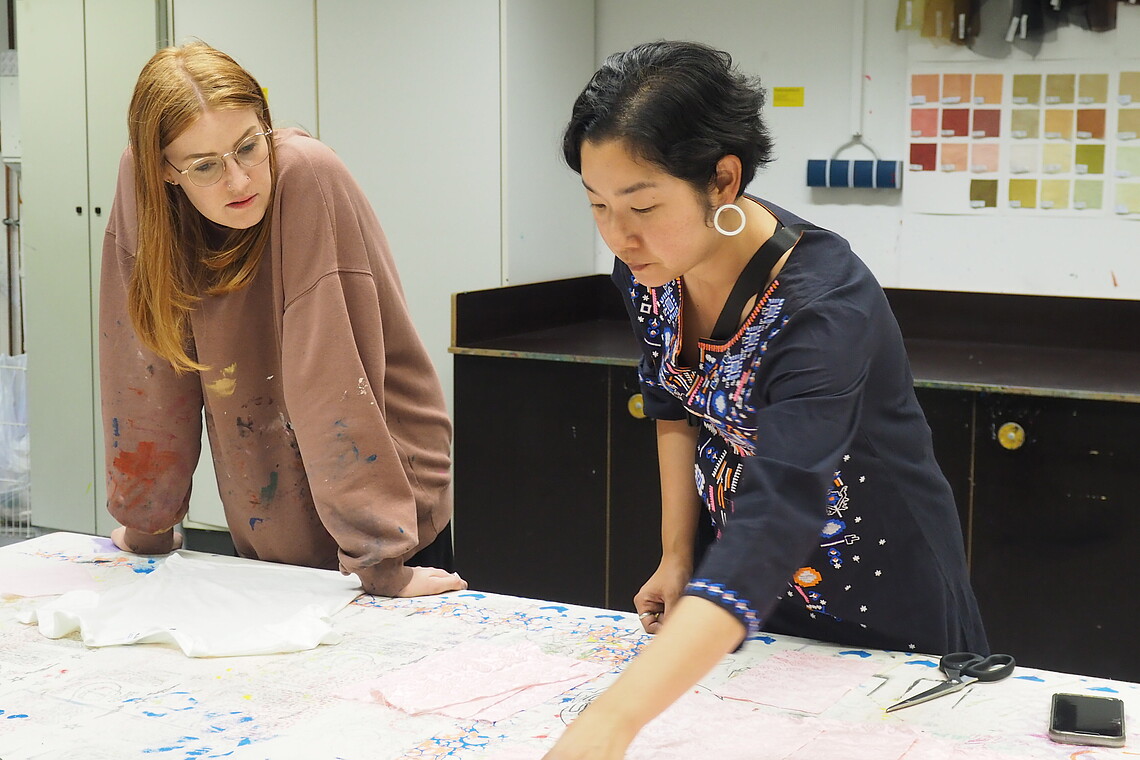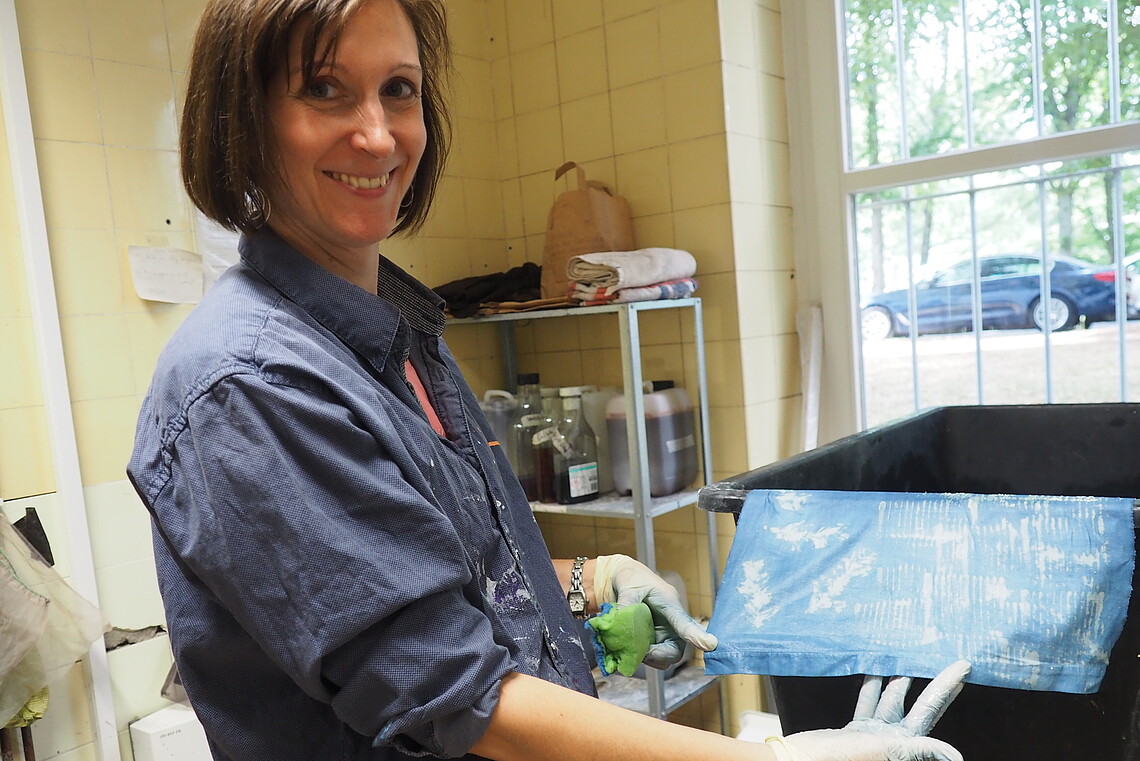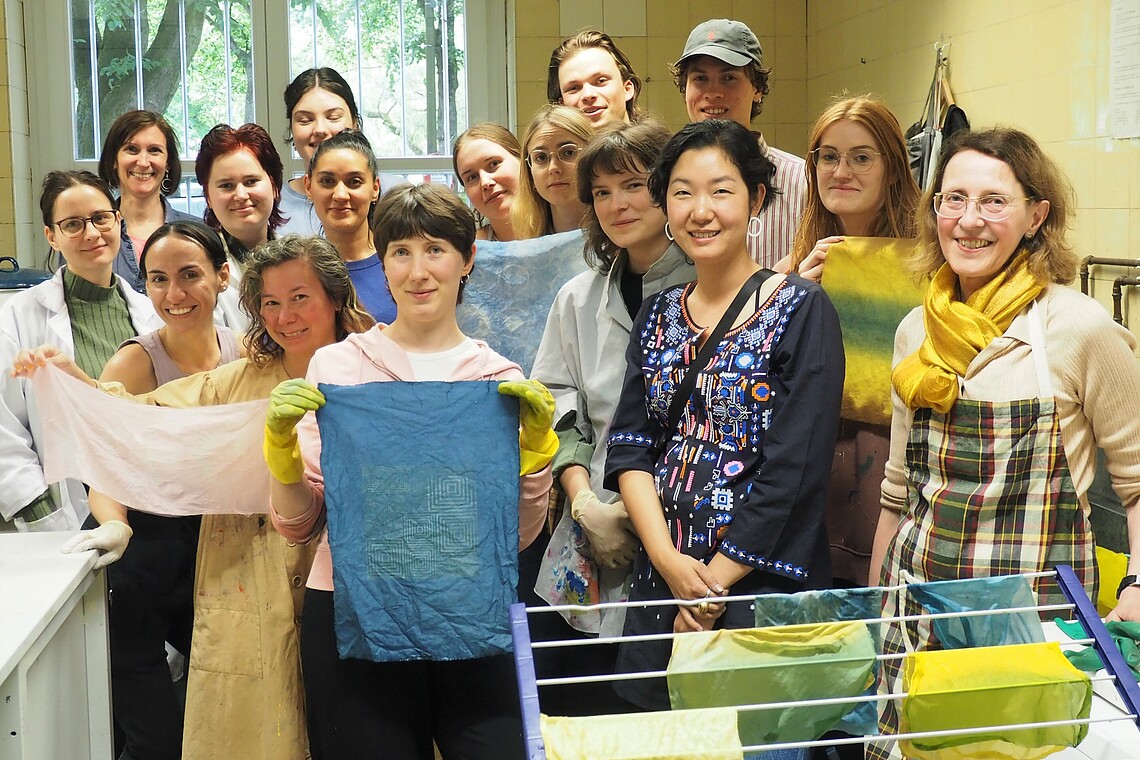Embedded in Prof. Renata Brink's Bachelor seminar 'Arts and crafts revisited – contemporary social and participative design', the workshop had one full seminar day for the students as an introduction to the topic as well as several drop-in days for discussion with Rosa Chang and for the practical implementation of the workshop topic. 'Complementary to our dyeing experiments in textile design at HAW Hamburg over the last two years with mainly domestic and local dyeing plants and their methods, the workshop looked at attitudes towards mindful handling of cultivation, harvesting and processing as well as the dyeing processes from the Asian context and beyond,' explains Renata Brink.
As a basis for the practical part of the workshop, large collaborative dye pots with four different colourings were produced: with gardenia flowers (YELLOW) as well as with flowers from the dye thistle (PINK/ROSÉ), with shells of the black walnut tree (BROWN) and with powder indigo (BLUE) from protected cultivation in the USA.
For example, the 'Dry Date Indigo Vat' was prepared in a large 60-litre stainless steel pot days before the workshop started. The fermentation here is supported by the sugar of the dates. 'With sensitively reacting recipes, setting up, dyeing and maintaining an indigo pot over an extended period of several weeks or even months is akin to caring for a living organism. This pot functions – or survives – only if the respective community here works well together in communication and arrangements,' Renata Brink says, describing the process. 'In a sense, the quality and survival of an indigo pot, that is, the functioning or non-functioning of communality and social aspects, which are becoming increasingly relevant in design, are mapped here.'
